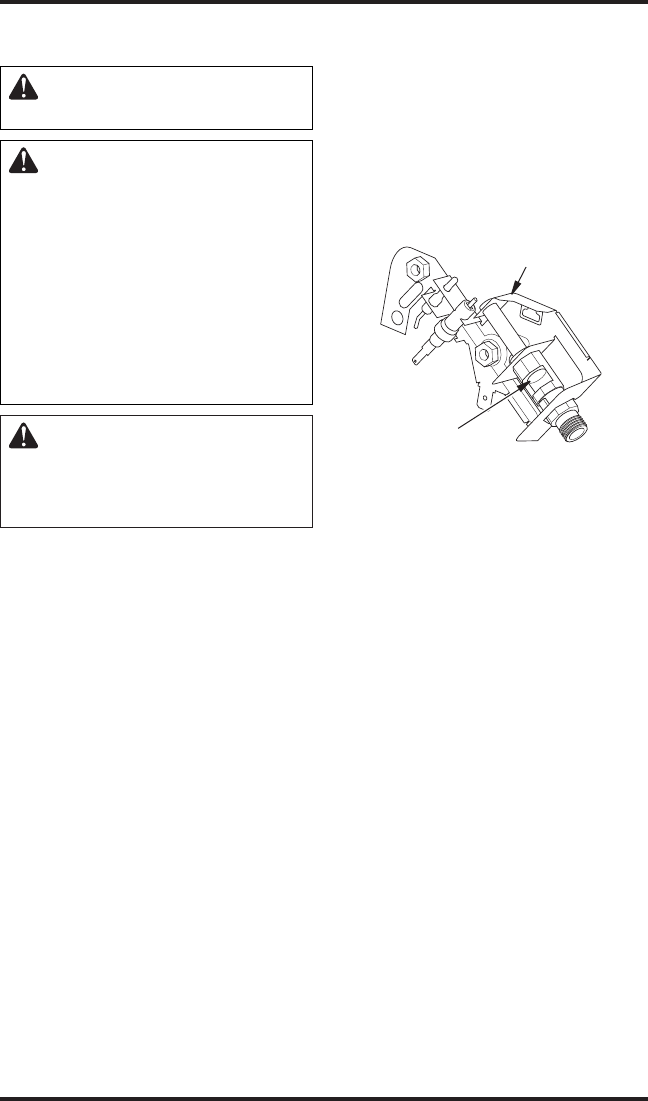
www.desatech.com
107882-01K 17
CLEANING AND
MAINTENANCE
WARNING: Turn off heater
and let cool before cleaning.
CAUTION: You must keep
control areas, burner, and circu-
lating air passageways of heater
clean. Inspect these areas of
heater before each use. Have
heater inspected yearly by a
qualified service person. Heater
may need more frequent clean-
ing due to excessive lint from
carpeting, bedding material, pet
hair, etc.
WARNING: Failure to keep
the primary air opening(s) of
the burner(s) clean may result in
sooting and property damage.
ODS/PILOT AND BURNER
Use a vacuum cleaner, pressurized air, or small,
soft bristled brush to clean.
BURNER PILOT AIR INLET
The primary air inlet holes allow the proper
amount of air to mix with the gas. This provides a
clean burning flame. Keep these holes clear of dust,
dirt, and lint. Clean these air inlet holes prior to
each heating season. Blocked air holes will create
soot. We recommend that you clean the unit every
three months during operation and have heater
inspected yearly by a qualified service person.
We also recommend that you keep the burner
tube and pilot assembly clean and free of dust and
dirt. To clean these parts we recommend using
compressed air no greater than 30 PSI. Your local
computer store, hardware store, or home center
may carry compressed air in a can. You can use a
vacuum cleaner in the blow position. If using com
-
pressed air in a can, please follow the directions on
the can. If you donʼt follow directions on the can,
you could damage the pilot assembly.
1. Shut off the unit, including the pilot. Allow
the unit to cool for at least thirty minutes.
2. Inspect burner and pilot for dust and dirt.
3. Blow air through the ports/slots and holes in
the burner.
4. Never insert objects into the pilot tube.
Clean the pilot assembly also. A yellow tip on the
pilot flame indicates dust and dirt in the pilot as
-
sembly. There is a small pilot air inlet about two
inches from where the pilot flame comes out of
the pilot assembly (see Figure 25). With the unit
off, lightly blow air through the air inlet. You may
blow through a drinking straw if compressed air
is not available.
CABINET
Air Passageways
Use a vacuum cleaner or pressurized air to
clean.
Exterior
Use a soft cloth dampened with a mild soap and
Figure 25 - Pilot Inlet Air (Propane/LP
Pilot Shown)
Pilot Assembly
Pilot Air Inlet


















